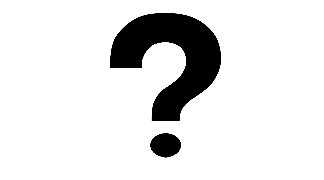 My wife’s grandfather, a Hasid who was trapped behind the Iron Curtain for decades before moving to Brooklyn, used to enjoy being asked who his rebbe was. After all, every good Hasid needs a rebbe. He would say that God is his rebbe, not any man. He answered to God and only God. That was a nice personal statement but, in reality, he took all his halachic questions to his synagogue rabbi and followed that rabbi’s decisions to the letter. He found his own way to deal with a dilemma that all modern Jews face: How much religious independence do we retain and how much do we cede to rabbis?
My wife’s grandfather, a Hasid who was trapped behind the Iron Curtain for decades before moving to Brooklyn, used to enjoy being asked who his rebbe was. After all, every good Hasid needs a rebbe. He would say that God is his rebbe, not any man. He answered to God and only God. That was a nice personal statement but, in reality, he took all his halachic questions to his synagogue rabbi and followed that rabbi’s decisions to the letter. He found his own way to deal with a dilemma that all modern Jews face: How much religious independence do we retain and how much do we cede to rabbis?
Modern Orthodoxy greatly values autonomy. It expects people to be independent thinkers who evaluate ideas and make their own decisions. God does not want robots. He gave people minds with which to think, to judge right from wrong, to distinguish truth from falsehood. If we simply place our fates in the hands of rabbis, how are we different from members of a cult who suffer abuse because they leave the thinking to their leader? If we give up some of our freedom to rabbis, are we sure they will use that power responsibly?
Rabbis are human, sometimes painfully so. They have strengths and flaws, just like the rest of us. We would be neglecting our duties as beings created in God’s image if we surrendered our freedom to rabbis. But that does not mean that we can disregard what rabbis have to say.
All right-thinking people value true expertise. Doctors know more about medicine than laymen; lawyers can guide you through the legal system better than others, and so on. This does not mean that all opinions of all doctors are equal. Some are greater experts than others and most are specialists with unique insight only in their area of specialization. Even experts disagree and sometimes, maybe not often, all of the experts turn out to be wrong. But someone with no medical or legal training has limited insight into those fields. Even if he turns out to be right, it means he guessed correctly and got lucky. When a complex issue arises, the layman’s opinion is generally too uninformed to be worthy of consideration.
Torah has experts, as well. God gave the Torah to the Jewish people as an inheritance for all, but that does not mean that everyone is equally knowledgeable. Some rabbis specialize in specific topics and others are well-rounded generalists. When complex Torah issues arise, the voices of the greatest experts are most important. I am not discussing deference to rabbis on matters of personal preference or politics but on Torah issues, where they are clearly more qualified than most. If we are truly interested in God’s revealed word of Torah in the broadest sense, we must turn to Torah experts on religious questions. Failing to do so would be neglecting our duty to seriously search for the truth of the Torah.
Keep in mind that even rabbis defer to their teachers and others greater than they. This is not an issue of rabbis demanding obedience but inhabiting the same awkward place between freedom and submission. Even teachers need a teacher.
Some people say that they will only accept a rabbi’s opinion on pure Torah issues, not on matters of judgment, worldviews or social policy. But this minimalist view of Torah ignores all that our texts and traditions have to tell us about life in this world and the next. Torah is much more than halacha, Jewish law. And even halacha is more than just “do this and don’t do that.” It has nuance and depth, sensitivities and broad implications. It is a guide for life.
Rav Joseph B. Soloveitchik argued very strongly about the need for rabbinic expertise with words that resonate to this day. As summarized by R. Abraham Besdin in Reflections of the Rav (p. 147):
“When people talk about a meaningful Halachah, of unfreezing the Halachah or an empirical Halachah, they are basically proposing Korah’s approach. Lacking a knowledge of halachic methodology, which can only be achieved through extensive study, they instead apply common-sense reasoning which is replete with platitudes and cliches… This da’at [common-sense] approach is not tolerated in science, and it should not receive serious credence in Halachah. Such judgments are pseudo-statements, lacking sophistication about depth relationships and meanings.”
Do-it-yourself Judaism, Rav Soloveitchik seems to be telling us, is doing it wrong. This analogy about experts holds true when thinking about rabbis who abuse their roles in any of a variety of ways. Like a doctor, a rabbi who oversteps his bounds should be dismissed. But in doing so, we do not reject the entire medical field nor the entire rabbinate. We discard the individual, not the system. If an expert fails, we pick up the pieces of our lives and look, with the great care of hard-learned experience, for another expert.
Read full article at the Jewish Link of New Jersey.
The words of this author reflect his/her own opinions and do not necessarily represent the official position of the Orthodox Union.
